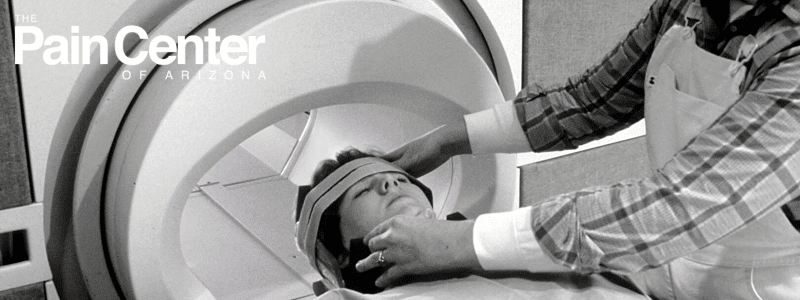
The development of the MRI (Magnetic Resonance Imaging) machine greatly revolutionized the treatment of chronic pain—specifically low back pain. Usually, an MRI scan is administered to confirm what physicians believe to be the reason for a patient’s pain. It can also be used for surgical planning such as a spinal fusion. An MRI scan can be a crucial part in planning chronic pain treatment, however, it is not always necessary.
At The Pain Center of Arizona, our team of board certified pain specialists use only the safest and most effective tools to diagnose and manage pain. With 15 locations in Arizona, The Pain Center is the best pain management facility in the entire state. We provide care to suffering pain patients across the state, giving rural communities a resource for any of their pain concerns.
MRI scans can be useful for a number of reasons other than surgical planning, including:
- To rule out potential complications i.e. infection or tumor
- To distinguish a recurrent disc herniation and scar tissue for patients who recently underwent surgery
- To determine if a tumor or infection is present before administering an epidural steroid injection
The MRI scanning works by using a rotating magnet around the patient. The magnet promotes the activity of hydrogen atoms in the body, which cause the atoms to emit radiation as they settle into their normal activity level. The MRI scanner picks up the radiation and is able to distinguish between tissues in the body such as fat, discs, fluid, bone, cartilage, and nerve roots.
If you suffer from leg pain or lower back pain, an MRI scan could be useful to your treatment plan. The following indications could prompt your Pain Center physician to administer an MRI:
- Leg pain that lasts longer than 4 to 6 weeks, warranting surgery
- Low back pain that lasts longer than 3 to 6 months, warranting surgery
- Back pain causes loss of appetite, weight loss, pain while resting, fever, and other symptoms that indicate a tumor or infection is present.
- Back pain that is persistent for 4 to 6 weeks following back surgery
If you or someone you love suffers from any chronic pain condition, contact the specialists at The Pain Center for the best care.




